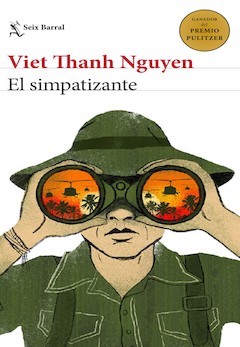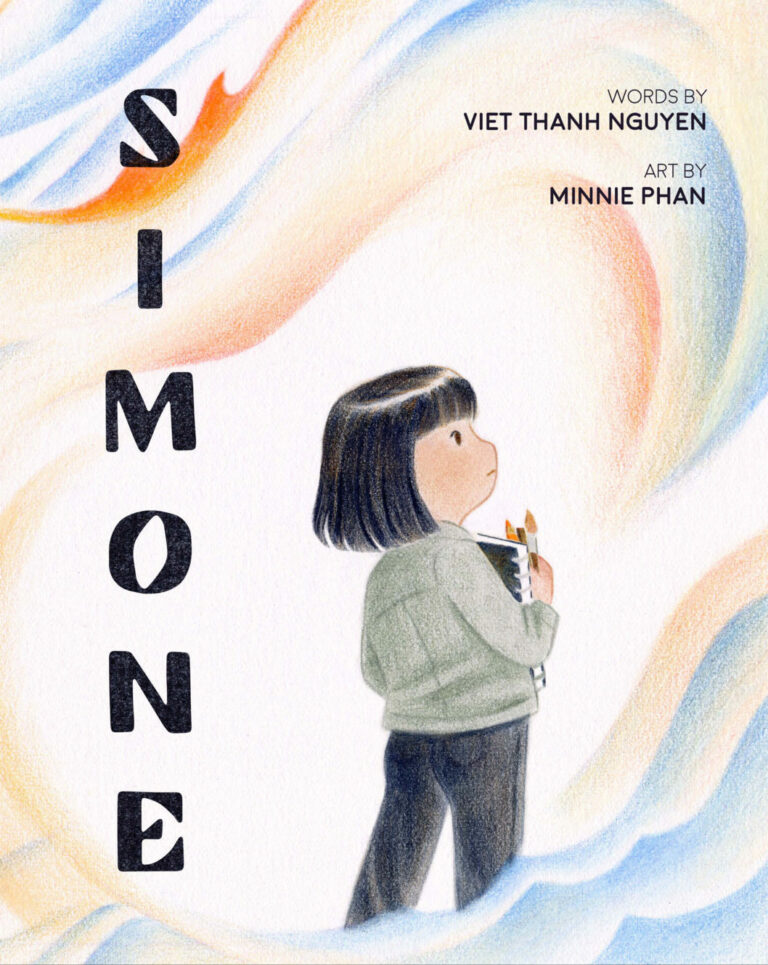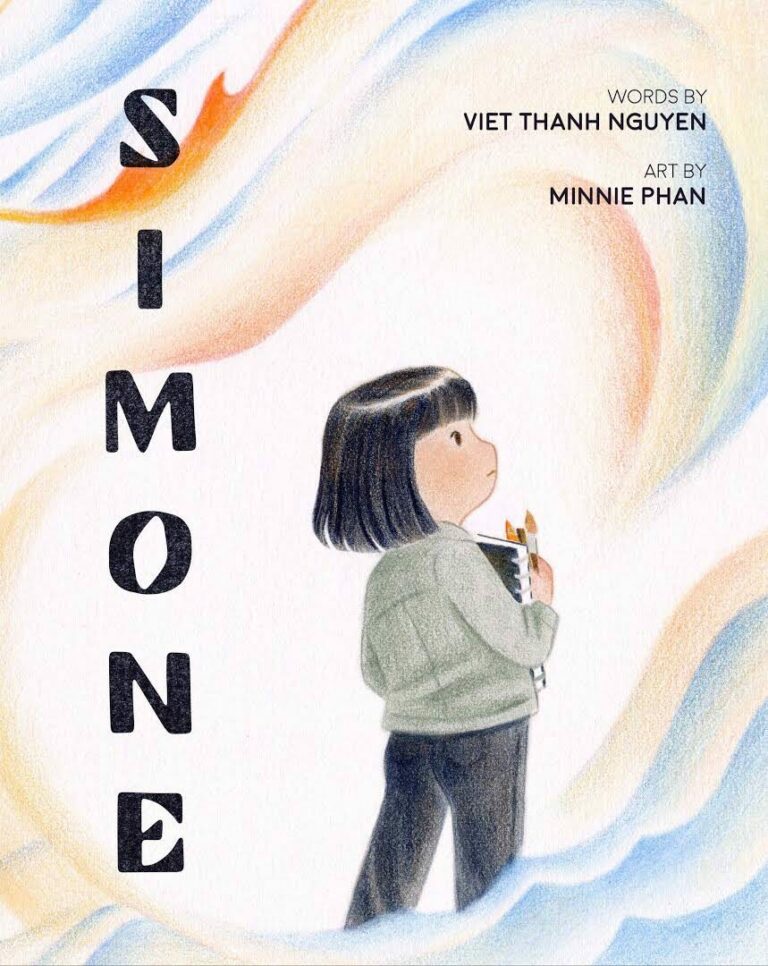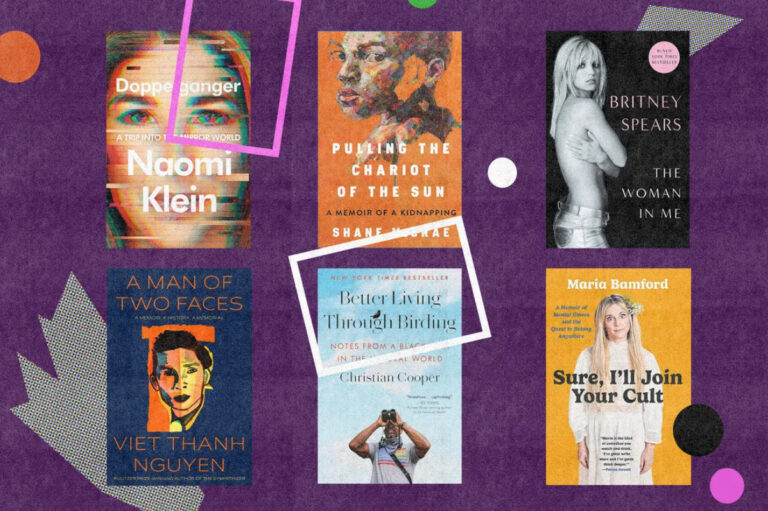Nicolás Meyer reviews The Sympathizer by Viet Thanh Nguyen. Originally published by Buenos Aires Herald.

Here’s a superlative novel about espionage, ideology, identity, war, race, friendship, guilt and more. The “more” includes incisive and barbed observations about power games between nations, between East and West, and between individuals. The text, which is engrossing throughout, achieves moments of white-hot intensity. US critics, who have tripped over one another to praise it, have made allusions to John Le Carré, Joseph Conrad, George Orwell and Graham Greene. Fully justified.
The artificer is Viet Thanh Nguyen, a US author whose family got out of South Vietnam as it was collapsing in 1975. He was then four years old, so what happens in this novel, which is set around that time, doesn’t come from his direct personal experience. It comes from research, which clearly must have included many things that people told him — though in his acknowledgments he mainly mentions texts — and from astute insight.
Readers are told in the first sentence that the central character is what is known in spy-talk as a “sleeper.” They quickly learn that, specifically, he is a Communist mole amid the Vietnamese refugees living in the United States. And since it likewise emerges that the story is being written by him in the form of a prison-cell memoir or confession to an unnamed “Commandant,” they see that his travails aren’t over.
A spook who has been out in the cold very long may have picked up ideological infections along the way, and this has to be established and purged out of him through interrogation and, er, guidance. If necessary, enhanced guidance. A spy’s “re-education” is one of the harrowing highlights of the book. Another is the monstrously chaotic and bungled evacuation of Saigon. After the city falls, it looks like a narrative lapse, a small one, when the victorious Communists don’t insist on always referring to it as Ho Chi Minh City. In fact, they never do.
Nguyen has a flair for words and imagery. In the émigré community in the US, “we soaped ourselves with sadness and rinsed ourselves with hope” (the quotes here are retranslations from the Spanish edition). “America, land of supermarkets and superhighways, supersonic planes and Superman, aircraft supercarriers and the Super Bowl!… all nations think themselves superior in their way, but has there ever existed (another) country capable of coining so many ‘super’ words emerging from the Federal Reserve of its narcissism?”
In a word, Nguyen is pitiless when it comes to analysing and skewering national characteristics, attitudes and actions, both US and Vietnamese. The French and Japanese don’t escape either. The narrator, whose father is a French priest, is particularly bitter at the Vietnamese contempt towards “bastards,” whom they refer to by that word to their face.
It should be stressed that the book isn’t a grim slog throughout. Much of the time, the mental outlook of the first-person chronicler, who’s definitely a bastard in the other sense of the word, is a kind of bittersweetly jaundiced optimism.
Speaking of which, after 80 percent of the story the latter suddenly shifts away from that strictly first-person chronicling. Since, in doing that, the author wasn’t seeking to make any kind of point on the basis of the switch in itself, but only needed to make it for narrative convenience, it might have felt like less of a lurch if a “Part II” or other separation device had been employed.
Nguyen never uses inverted commas; it’s a stylistic choice. Sometimes this gives extra immediacy to the dialogue, by diving into it unmediated by such quotation-marks. Sometimes it makes the reader retrace the words to work out when, precisely, reported speech ended and dialogue began, or who is speaking it.
At some point the reader realises that having a mixed parentage, or some abnormal physical characteristic, isn’t only the trait in itself but also a symbol of something about the person involved — an advantage, a limitation, a way of seeing things. It may be a matter of taste if this is seen as clever or too unsubtle. At any rate, Nguyen can point to the use of a hunched back on Richard III to symbolise a warped character.
One of the sections that stand out in this work deals with Hollywood, specifically with the making of a movie (undisguisedly like Francis Ford Coppola’s Apocalypse Now). “This was the first war in which the losers were to write the history, instead of the victors.” Nguyen hates the film for reducing the Vietnamese to little more than extras in their own land. In a scorching novel, this part finds him at his most mordant.


